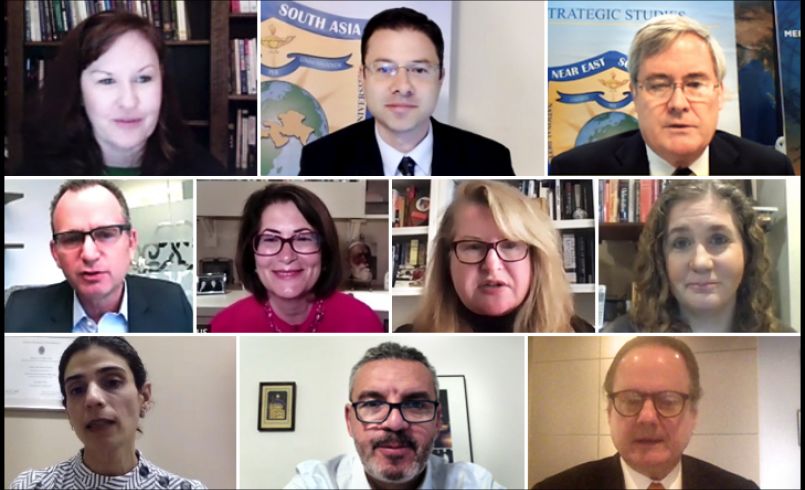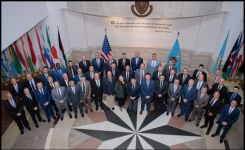- Near East South Asia Center for Strategic Studies
- Lebanon Fouad Shehab Command & Staff College Pr...
Lebanon Fouad Shehab Command & Staff College Program
6 April – 9 April 2021 – Events in Lebanon and the United States over the last 10 months have conclusively demonstrated that leaders do not have the luxury of responding to crises one at a time. Whether grappling with global pandemics, national disasters, or violent extremism, states must constantly seek capacity resilience which allows them to prioritize and respond to multi-layered crises. The NESA Center led a virtual program that focused on Navigating a Multi-crisis Environment to help participants identify the parameters of the dominant contemporary crises, while also developing mechanisms to prioritize responses and skills for managing requests for aid. This short program led by Professor Jennifer Jefferis and moderated by Professor Michael Sharnoff exposed participants to a myriad of issues that currently characterize the international security environment and provided a forum for discussion and conversation about opportunities for cooperation and action.
Speakers from the Lebanon Fouad Shehab Command and Staff College Program: from top left, NESA Professor Jennifer Jefferis, NESA Professor Michael Sharnoff, NESA Director LTG (ret) Terry Wolff, Dr. Paul Salem (President, Middle East Institute), Dr. Randa Slim (Senior Fellow and Director of Conflict Resolution and Track II Dialogues Program, Middle East Institute, Non-Resident Fellow, Johns Hopkins University School of Advanced and International Studies (SAIS) Foreign Policy Institute), Dr. Sue Bryant (Executive Director, Strategic Education International; Adjunct Associate Professor, Center for Security Studies at Georgetown University), Dr. Jennifer Nuzzo (Senior Scholar, Johns Hopkins Center for Health Security), Dr. Eveline Hitti (Chair, Department of Emergency Medicine, American University of Beirut), Mr. Khaled Elgindy (Senior Fellow, Director of Program on Palestine and Palestinian-Israeli Affairs, Middle East Institute), Dr. Michael Brown (Professor of International Affairs and Political Science, Elliott School of International Affairs at George Washington University)
The views presented in this article are those of the speaker or author and do not necessarily represent the views of DoD or its components.



